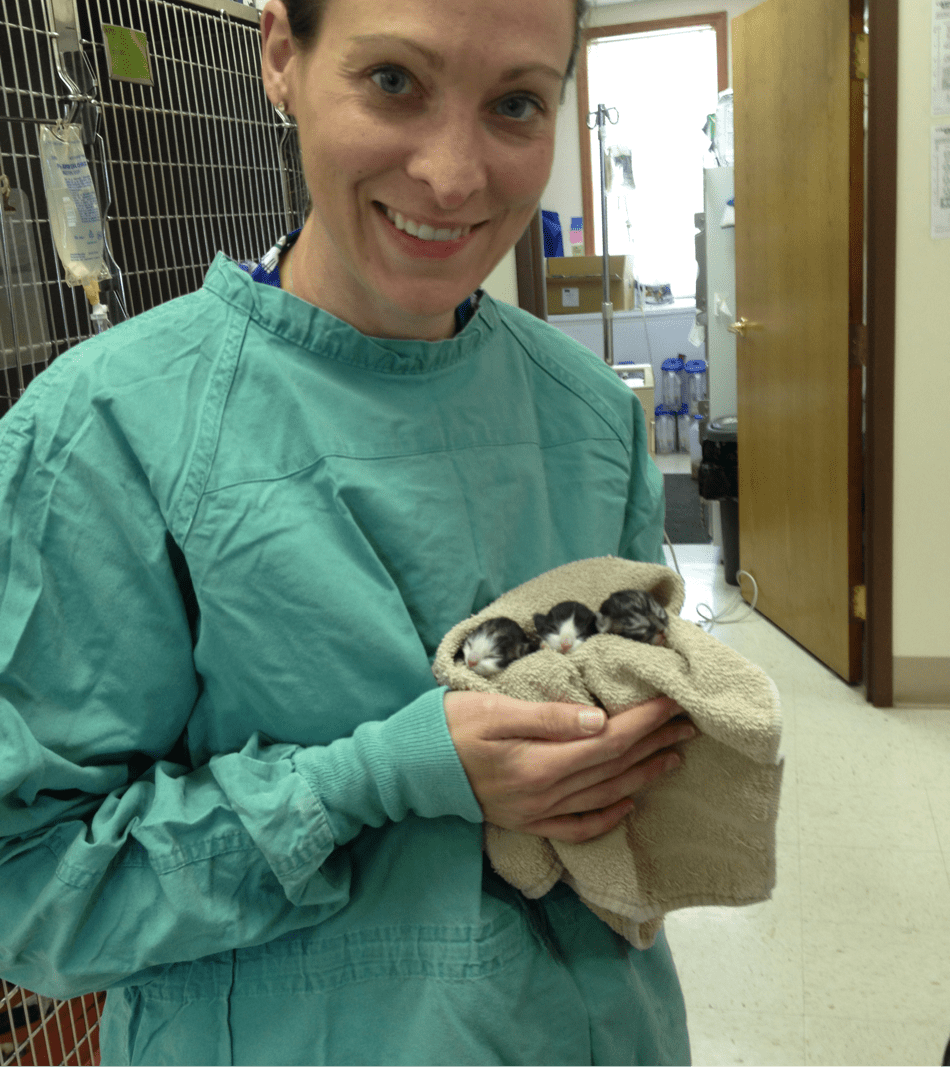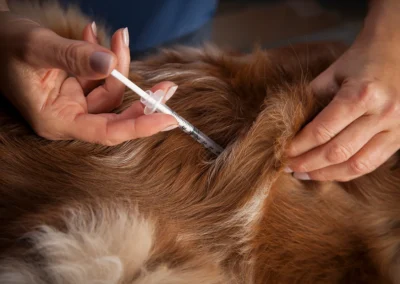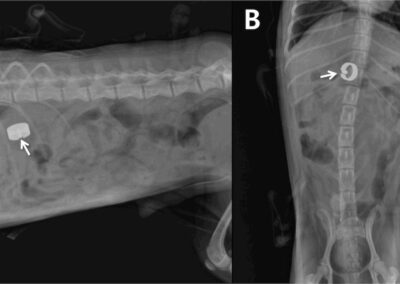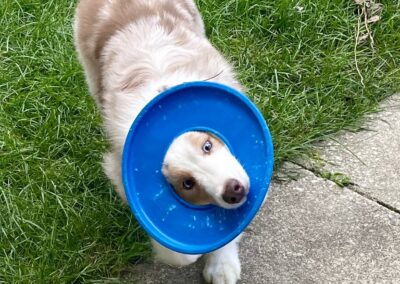Over 3 Million Pets Reunited and Counting
A microchip greatly increases the chance that if your pet is lost they will be returned to you, however, they only work if the registration information is accurate. To help owners remember to keep the microchip information current HomeAgain and the AVMA have teamed up to create an annual date to remind you to check that not only is the microchip still working but to check your registration information.
Microchipping pet is a simple procedure and can be done awake most of the time. My preference in puppies and kittens is to implant the chip at the time of a spay or neuter. If animals are adopted older it really could be done anytime. A large needle is inserted under the pets skin and a small microchip (about the size of a grain of rice) is pushed through the needle and stays under the skin. Typically once the microchip is implanted it is good for the life of the pet but if there is any trauma to the microchip (dog fight, hit by a car, significant fall, etc) could be damaged. This is why it is important to have the chip scanned at regular intervals to be sure that it is still functioning.
Even microchipped pets should still wear a collar with tags as an additional measure to return them home. The microchip serves as a back up if the collar is lost or damaged.
If you adopt an animal from an individual that is already microchipped be sure to call the company together to transfer the registration information. If you adopt from a shelter ask the staff if the pet is registered to you as the owner or the shelter. Some rescue groups will allow transfer to new owners and others like to keep the shelter as the primary contact with the new owner as a back up contact.

To update your pet’s registration, you’ll need your pet’s microchip number. If you haven’t already created an account with the manufacturer, you’ll need to do that as well so you can access the registration in the future to update the information. Make sure that all of the information, particularly your phone number(s) and address, are correct.
There are many databases that allow you to register your pet’s microchip, but the one that really counts – the one that animal shelters and veterinarians will search – is AAHA’s Universal Pet Microchip Registry Look up is linked to the registries of the majority of microchip manufacturers and allows a quick database search of any microchip made by these manufacturers. In addition, a number of public microchip registries have also been linked to the AAHA Universal Pet Microchip Lookup Tool to make it easier to find a microchip’s registration.
If your pet has not been microchipped now is a great time to schedule an appointment with your veterinarian and if you pet is microchipped be sure to have it scanned at your next appointment to be sure it is working.

 Barks & Recreation is proud to feature Dr. Eileen Savier CVA, CVCH as our Veterinary Blogger in our “From the Vet” Series — offering information related to the health and welfare of your furry family members! Currently part of the team of doctors at Keystone Veterinary Clinic, Dr. Savier is a 2012 Graduate of the Ross University School of Veterinary Medicine, She completed her clinical experience at The Ohio State University and after veterinary school she pursued further education and certification in Veterinary Acupuncture, Chinese Herbal Medicine, and Fear Free veterinary visits. Dr. Savier has a special interest in integrative medicine, animal behavior, and internal medicine and is committed to improving animal health care by integrating Eastern and Western philosophies. She enjoys working with fearful & aggressive dogs and cats and she has had additional training in low stress handling techniques and encourages positive reinforcement during exams and procedures. Her clinical interests include pain management, animal behavior, geriatric patient care, and internal medicine.
Barks & Recreation is proud to feature Dr. Eileen Savier CVA, CVCH as our Veterinary Blogger in our “From the Vet” Series — offering information related to the health and welfare of your furry family members! Currently part of the team of doctors at Keystone Veterinary Clinic, Dr. Savier is a 2012 Graduate of the Ross University School of Veterinary Medicine, She completed her clinical experience at The Ohio State University and after veterinary school she pursued further education and certification in Veterinary Acupuncture, Chinese Herbal Medicine, and Fear Free veterinary visits. Dr. Savier has a special interest in integrative medicine, animal behavior, and internal medicine and is committed to improving animal health care by integrating Eastern and Western philosophies. She enjoys working with fearful & aggressive dogs and cats and she has had additional training in low stress handling techniques and encourages positive reinforcement during exams and procedures. Her clinical interests include pain management, animal behavior, geriatric patient care, and internal medicine. Dr. Savier shares her home with two (soon to be three) dogs, two cats, and a toddler. She lovingly refers to her two dogs as Coconut Retrievers as they were rescue dogs she brought home from the island of St. Kitts. In her free time she enjoys spending time with her family, going to the beach, and planning her next Disney vacation.
Dr. Savier shares her home with two (soon to be three) dogs, two cats, and a toddler. She lovingly refers to her two dogs as Coconut Retrievers as they were rescue dogs she brought home from the island of St. Kitts. In her free time she enjoys spending time with her family, going to the beach, and planning her next Disney vacation.




